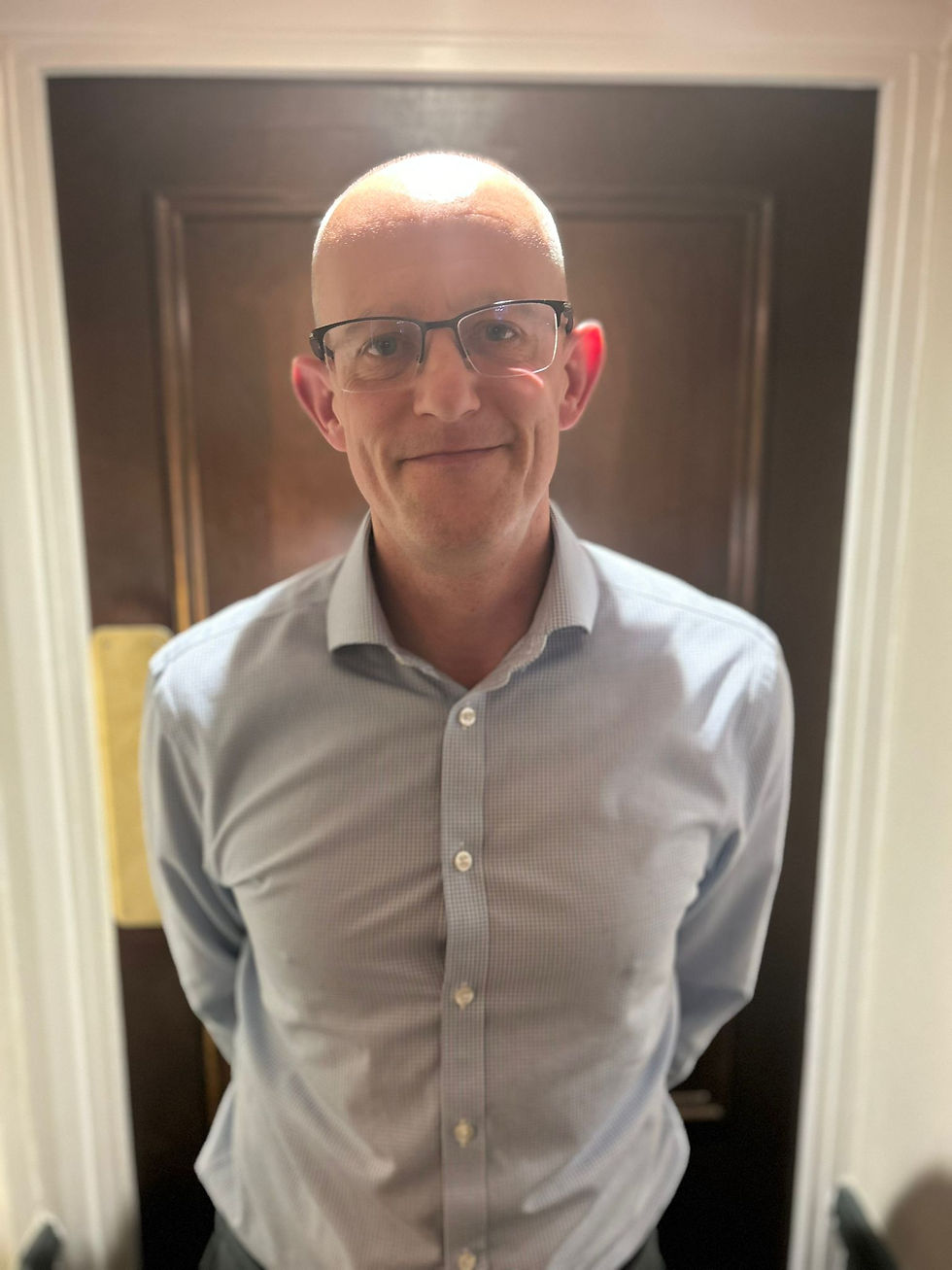Mitochondria
- Mark Mardell

- Mar 8, 2025
- 3 min read
Do you know what mitochondria are? Don't worry, neither did the Movers & Shakers until they gathered two top experts with them at the Notting Hill pub in order to probe this line of enquiry. Could "aberrant" (as the Judge is prone to call them) mitochondria be responsible for Parkinson's? And, if so, are there possible therapies that might impact the development of the disease, and, if not cure it outright, arrest its progression? All this – and more! – on a fascinating voyage into one of the most exciting areas of scientific discovery.
By Podot
Each week Rory Cellan-Jones guides us between the laughs and moans in the pub. To read Rory's summary of this week's episode click here.
Guest Biographies
Neil Miller

Neil Miller is the Co-Founder & CEO at NRG Therapeutics. Neil has over 20 years’ pharma & biotech experience and is passionate about bringing new medicines and hope to the growing number of people worldwide living with debilitating neurodegenerative disorders. NRG Therapeutics is a neuroscience-focussed drug discovery company building a pipeline of disease modifying drug candidates, it is focused on therapeutic approaches that will restore mitochondrial function and slow or halt the progression of neurodegenerative diseases such as Parkinson’s.
Prof. Heather Mortiboys

Prof. Heather Mortiboys leads a research group at the University of Sheffield, focusing on the cellular mechanisms underlying Parkinson's. Her work delves into mitochondrial dysfunction and its role in neurodegeneration, aiming to identify novel therapeutic targets to slow or halt progression. Heather's driving force is improving patient lives, evident in her work repurposing compounds and developing robust testing technologies. This led to the discovery of ursodeoxycholic acid (UDCA)'s positive effects, UDCA is now in clinical trials for Parkinson’s.
Passionate about science communication, Heather actively engages with the public and advocates for those affected by neurological disorders. She prioritizes patient perspectives through PPI events and focus groups, shaping research for greater impact. This dedication spurred the development of Mitotypes Precision Labs, utilising her unique disease models and high-throughput techniques to accelerate drug discovery. This will enable pharmaceutical companies to identify lead compounds and advance to clinical trials more rapidly. Heather is an enthusiastic mentor to early career researchers, offering support and guidance for all career options stemming from a PhD in science, evidenced by her selection as “Inspirational Woman in 2024”.

A note from Prof. Heather Mortiboys...
At the Mortiboys Lab, our research delves into the intricate mechanisms underpinning Parkinson's. A central focus is mitochondria, the cell's powerhouses, often compromised in Parkinson's. When these vital cell components malfunction, they trigger a cascade that contributes to neuronal death.
We utilise patient-derived cells, advanced imaging and high-throughput assays to explore how mitochondrial dysfunction unfolds in Parkinson's. This allows us to investigate the complex interplay of factors leading to toxic protein accumulation and dopamine neuron loss.
Beyond mitochondria, we also investigate lysosomes and autophagy, the cell's essential waste disposal system. Understanding how this system is disrupted in Parkinson's and aging is crucial. Specifically, we are deeply interested in mitophagy, the targeted removal of damaged mitochondria, and are actively seeking small molecules to modulate this process.
Furthermore, our research extends to key proteins like alpha-synuclein (involved in protein clumps and spreading in Parkinson’s), examining how their clumping contributes to Parkinson's. We are also exploring the intricate connection between other genetic factors and mitochondrial function, aiming to unravel how genetic factors influence cellular health.
These comprehensive investigations are pivotal for identifying novel therapeutic targets and developing innovative treatments that can address the multifaceted nature of Parkinson's. Our goal is to translate these findings into tangible benefits for those living with Parkinson's, ultimately improving their quality of life.


